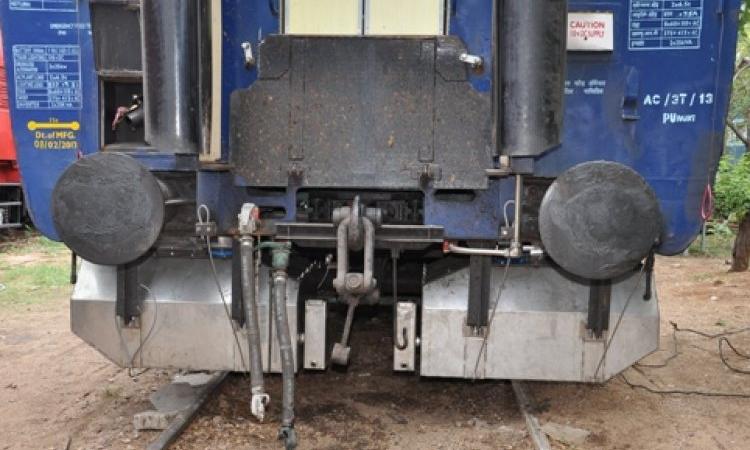
Railways biodigesters are not better than septic tanks: IIT study
According to a two-year-long study by the Indian Institute of Technology (IIT), Madras, the biodigesters installed in Indian trains over four years at a cost of Rs 1,305 crore are no better than a septic tank. Biodigesters are a new kind of toilets that use bacteria to break down human excreta. However, various studies and sanitation experts have pointed out that these toilets are ineffective or ill-maintained and the water discharged from them are no better than raw sewage. Despite criticism, the Railways plan to spend another Rs 1,200 crore on bio toilets.
Four Indians felicitated with UNEP's Ozone Award
The United Nations Environment Programme (UNEP) has awarded four Indians--former environment minister Anil Madhav Dave, deputy director of Centre for Science and Environment (CSE) Chandra Bhushan, IIT Delhi Prof R. S. Agarwal and Atul Bagai, who works with the UNEP--with the Ozone Award. While Dave and Bhushan have been recognised for their respective roles in Kigali Amendment signed in October 2016, Bagai has been honoured in the category of ‘Policy and Implementation Leadership’.
Map identifying best regions for organic farming out
The ICAR-National Bureau of Soil Survey and Land Use Planning (NBSS&LUP), along with ICAR-Indian Institute of Soil Science, Bhopal, and Food and Agricultural Organisation (FAO) have prepared a digital map identifying areas holding high potential for organic farming in the country. The study has revealed that the entire northeast India and the region falling under the Western Ghats are ideal for organic farming, while Punjab, Haryana, Uttar Pradesh and West Bengal have a low potential for organic farming due to intensive cultivation.
TN's Biodiversity Conservation and Greening Project not producing result
The state government had launched the Tamil Nadu Biodiversity Conservation and Greening Project (TBGP) in 2011 with an aim to conserve biodiversity in the state by increasing the green cover and promoting tribal development through eco-tourism and capacity building. However, as per the forest officials, the project has not been able to achieve its objectives in these six years. The first phase of the project, which will end in 2019, has been sponsored by the Japan International Cooperation Agency (JICA) but there are speculations that JICA may not allot money for the second phase of the project if the results of the first one are not satisfactory.
Hussainsagar frothing
For the first time, Hussainsagar in Hyderabad started frothing. The 450-year-old lake which served the drinking water needs of lakhs of people in Hyderabad is deemed to be dead due to a high level of pollution. However, as per the experts, frothing of water bodies is a natural phenomenon during the rainy season. With the rainy season gone, frothing is an indication of chemical reactions in the lake from pollutants being disposed of in the lake.
This is a roundup of important news from November 21 - 27, 2017. Also, read the policy matters this week.
/articles/study-claims-railways-biodigesters-ineffective